Mulch and compost....how to use both properly?
rouge21_gw (CDN Z5b/6a)
5 years ago
last modified: 5 years ago
Featured Answer
Comments (33)
linaria_gw
5 years agolast modified: 5 years agogardengal48 (PNW Z8/9)
5 years agoRelated Discussions
How to properly store bare root
Comments (16)You're welcome, Rachael. I wouldn't worry about that damage. It will probably regenerate itself as long as the plant hasn't, or doesn't become too dehydrated and that area dies. That's what knocks them off usually. Either that, sun burning or freezing. Otherwise, in the absence of diseases or other physical damage, the plant contains all the necessary mechanisms to regenerate whatever it needs, when it needs it. All it requires from you and the environment are the water, temps and nutrients for it to do what it "knows" to do. Over time, you will learn what roses do well where you are in what form. I respect Pickering as a business and as a rose supplier. I don't buy from them because their root stock does not do well in my soil, water and conditions. Multiflora isn't happy here, not even as a plant on its own. Anything with too strong a multiflora influence suffers and simply doesn't perform as it should. That goes for anything budded to a strongly multiflora type root stock as well as own root roses possessing that influence. For budded plant roots, Dr. Huey and Fortuniana do better here. If what I want will perform well here own root, and I can get it, that's what I will go with. If it's only available budded to a suitable stock for my conditions, then that's fine, too. I hate killing a plant, so I won't buy one budded to an unsuitable stock simply to propagate it then dump the unsuitable plant. (of course unpatented types only!) So, I'll just keep an eye out for possible cuttings down the road and work on other things. I have propagated two flats of stocks to bud some of what I already grow to improve their performance here. Even though they are alive and grow a bit, I'm sure they would be much better garden plants with more vigor. That's what budding can help provide. It all depends on a number of variables. Kim...See MoreCan a wood mulch pile overheat?
Comments (42)pnb - all of the work I've seen on extracting heat from compost process has been done with static piles, with one exception (some crafty Brits). The problem with a static compost pile as a thermal energy source is that it is an out-of-control process, meaning there is no control. That presents a number of challenges to make the capital investment worthwhile. Composting for a thermal energy source will need to be much more precise than what we tend to practice around our gardens. The composition of the mix, including moisture, should be controlled with a measure of accuracy generally unseen in gardening. Capturing and using the heat generated from the decomposition of organic materials for controlled use is no longer just getting decomposed materials - those are down on the list as waste materials. Then there is pile size, geometry, etc.. It's not a simple list. I believe the engineering approach would be to oversize the pile to assure that, within a reasonable range of expected heat generating capacity, it would more than meet the demand, then add a means of exhausting the excess heat as waste. There are a number of ways to exhaust the excess heat. The trick is being able to control it. There has been a lot of work done with heating greenhouses, which is less demanding than residential space heating. A pretty good assessment is available in an undergraduate thesis from the University of Waterloo in Canada (good school!). If it were me, I'd start small and try to work out the bugs and control issues with something like hot water....See MoreHow to properly care for my trees
Comments (19)Luey, be VERY careful with insecticidal soap right now. It's just too hot in your area to use it, you'll fry the leaves right off, now. Temps need to be below 85 degrees to use it. If you will get your citrus healthy and thriving, the chances of pests attacking your citrus are drastically reduced. The only pests I deal with are snails/slugs and Citrus Leaf Miner. I don't need to do anything but put down Sluggo in the winter and spring/early summer, and then spray for CLM in July. Let's get more water to stay in the root zone for your citrus right now. Once they recover, you can fertilize. If you fertilize in the state they're in right now (stressed), you can burn the roots. It's water and shade right now. You may need to amend the holes, top with LOTS of compost (6" I would guess or more), top with 2 or 3 more inches of mulch, keeping the mulch and compost away from the trunks. Definitely talk with your Master Gardeners or see about going to a class or seminar about citrus and fruit tree growing in your area. You have some very unique needs, but for sure it can be done. Patty S....See MoreSheet mulch for next year's veggie garden?
Comments (17)I've never had it happen either Jerry, but it does happen from time to time. Traditionally, it was most common in boggy areas, and sometimes in loam that already had decent amounts of OM. The move to walled raised bed gardens though, seems to have created more opportunity for problems resulting from excessively high organic matter content. If the raised beds were created using mineral-based soils, it is less of an issue. However, we are seeing more and more cases of garden plantings suffering from too much moisture/not enough air. Another contributing factor, it seems to me, is the bagged 'soil'/amendment industry. Many of the products are sold as 'soil', but a close inspection of the ingredient label reveals that most of these products are the waste streams of the wood/pulp industry, the meat processing industry, and even the municipal sewer treatment 'industry'. Now, each of these, when properly processed, can be perfectly fine amendments to a soil. However, when people are unaware of how to apply them properly, or are 'victims' (not really the best word) of misleading labeling practices, then these products can contribute to excessive organic matter content. Basically... John and Jane Suburbanite, hoping to feed themselves and their children healthy food and create a little oasis all their own, engage in a little DIY and fall prey to an industry that is now largely in the hands of the big box stores. They want to keep things tidy in their little half acre, and build a few raised beds, as well as some nice perennial plantings. They go out to Lowes, Home Depot, Walmart, or some of the other large stores staffed by sales people trained by the product vendors. They are steered towards the bagged 'soil' products which do not contain any actual soil at all. Even the sq. ft. gardeners can fall into a similar situation with the over-use of compost. Too much water-retaining capacity, not enough drainage nor porosity for air (CO2/O2, etc...) exchange....See Morececily 7A
5 years agoken_adrian Adrian MI cold Z5
5 years agolast modified: 5 years agoken_adrian Adrian MI cold Z5
5 years agogardengal48 (PNW Z8/9)
5 years agolast modified: 5 years agoglib
5 years agoRichard Brennan
5 years agowoodyoak zone 5 southern Ont., Canada
5 years agolast modified: 5 years agolinaria_gw
5 years agorouge21_gw (CDN Z5b/6a)
5 years agorouge21_gw (CDN Z5b/6a)
5 years agolast modified: 5 years agorouge21_gw (CDN Z5b/6a)
5 years agorouge21_gw (CDN Z5b/6a)
5 years agorouge21_gw (CDN Z5b/6a)
5 years agorouge21_gw (CDN Z5b/6a)
5 years agorouge21_gw (CDN Z5b/6a)
5 years agomxk3 z5b_MI
5 years agoannpat
5 years agogardengal48 (PNW Z8/9)
5 years agorouge21_gw (CDN Z5b/6a)
5 years agolast modified: 5 years agoSkip1909
5 years agolast modified: 5 years agorouge21_gw (CDN Z5b/6a)
5 years agorouge21_gw (CDN Z5b/6a)
5 years agomxk3 z5b_MI
5 years agorouge21_gw (CDN Z5b/6a)
5 years agomxk3 z5b_MI
5 years ago
Related Stories

GARDENING GUIDESNew Ways to Think About All That Mulch in the Garden
Before you go making a mountain out of a mulch hill, learn the facts about what your plants and soil really want
Full Story
GARDENING GUIDESGet on a Composting Kick (Hello, Free Fertilizer!)
Quit shelling out for pricey substitutes that aren’t even as good. Here’s how to give your soil the best while lightening your trash load
Full Story
GARDENING GUIDESHow to Pick a Mulch — and Why Your Soil Wants It
There's more to topdressing than shredded wood. Learn about mulch types, costs and design considerations here
Full Story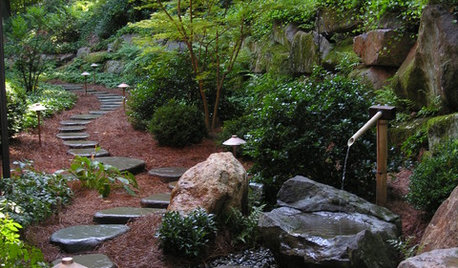
GARDENING GUIDESLowly Mulch Makes Magic in the Garden
Find out why you should be mulching your garden beds and what material is right for your site
Full Story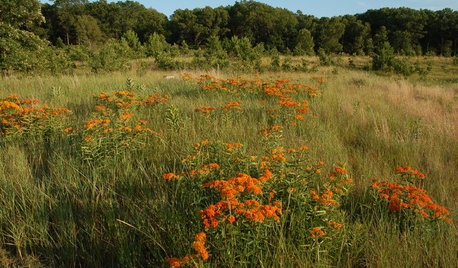
GARDENING GUIDESThe Art of Green Mulch
You can design a natural garden that doesn’t rely on covering your soil with wood and bark mulch
Full Story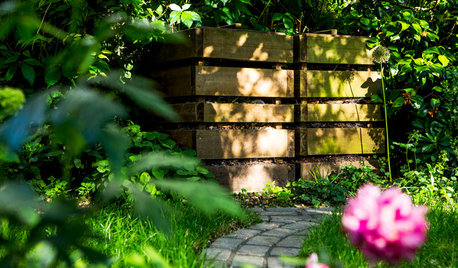
GARDENING GUIDESProfessional Tips for Making Your Own Compost
Learn how to create a free supply of nutrient-rich soil for your garden with expert advice from Houzz landscape pros
Full Story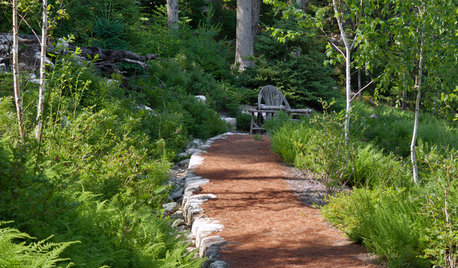
GARDENING GUIDES5 Things to Know About Weeding and Mulching Your Native Garden
What’s the best time to pull weeds? How thick should the mulch be? Here’s the scoop for a healthy landscape
Full Story
GARDENING GUIDESGarden Myths to Debunk as You Dig This Fall and Rest Over Winter
Termites hate wood mulch, don’t amend soil for trees, avoid gravel in planters — and more nuggets of garden wisdom
Full Story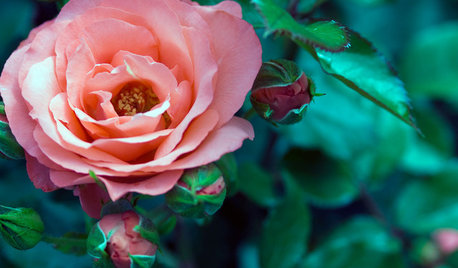
GARDENING GUIDESLearn the Secret to Bigger and Better Roses
Grow beautiful roses using both ordinary and unusual soil amendments
Full Story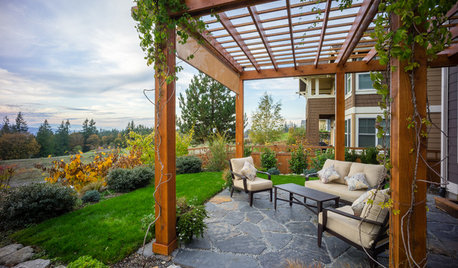
FALL GARDENINGWhy Fall Is the Best Time for Planting
Spring is overrated for planting. Starting plants in autumn has advantages for both garden and gardener
Full Story



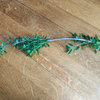
nicholsworth Z6 Indianapolis